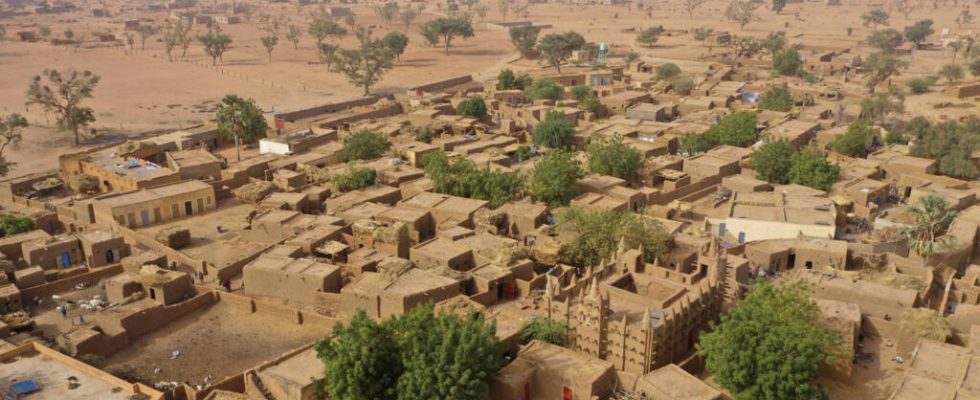More than 40,000 Burkinabè have arrived in Mali since last December, others continue to arrive every day by the hundreds according to the United Nations High Commission for Refugees (UNHCR). These families are fleeing Burkina Faso, at the pace of the violence which is plaguing the country: a significant peak has been noted since the beginning of March 2024. But the Burkinabè refugees arrive in a Mali itself prey to insecurity and which is struggling to cope. meet all the needs of these newcomers.
4 mins
Every day, more than 500 Burkinabè have been entering Mali for more than three months, according to figures from the United Nations High Commission for Refugees (UNHCR).
Mostly women and children, these refugees are heading to Koro – on the other side of the border and where more than 25,000 refugees have already been registered – but also to Mopti, Bandiagara, San and other localities in central Mali. Some flee terrorist attacksothers the operations of the Burkinabè army and its auxiliaries of the Volunteers for the Defense of the Fatherland (VDP), trained by villagers recruited by the army to contribute to the fight against terrorism.
Welcomed into families
The UNHCR representative in Mali, Mohamed Askia Touré, warns about the reception conditions of the 40,000 Burkinabè refugees who have arrived over the past three months.
“ It is enormous ! 40,000 people is the equivalent of a medium-sized city “, he begins by asking, before detailing: “ They are first welcomed into the host populations, into families. We must point out their great generosity, their big heart, because often the authorities are not able to respond to the needs of these populations who come in quite massive numbers. The humanitarian community is unfortunately very little present due to insecurity, and we do not have a camp [de réfugiés, ndlr] established. The needs are immense, immeasurable. First in material needs: these refugees need water, shelter, care and food. »
Read alsoDamning report from HRW for the Burkinabè army surrounding drone attacks on civilians
“ We were given mats, buckets, but no food »
These Burkinabè refugees mainly come from the provinces of Soum, Yatenga and Léraba, bordering Mali.
Moussa Dicko (name changed for security reasons) is from from the village of Bouro, near Djibo, where a massacre was committed last December. Was it by a terrorist group or by soldiers operating in the area at that time? No claim or definitive proof has come to support the identity of the attackers.
After fleeing, Moussa Dicko ended up reaching Mali and the town of Sévaré in February:
“ In our village, people came to killhe remembers. There were motorbikes, cars, they were armed, but we don’t know who they were. They killed many men, women, children… they killed people. In my family, not everyone made it out. My mother, one of my sisters and one of my brothers survived. The others, they killed them. In my family alone, they killed 25 people. So we fled, we couldn’t stay. We went through Douna, in Burkina, then through Koro in Mali, and now we are in Sévaré, where we found family. But we need food and shelter. Since our arrival, we have filled out paperwork, we have been given mats, buckets, but no food. »
Moussa Dicko, Burkinabe refugee, explains why he had to leave his town and go to Mali
Insecurity on both sides of the border
There is also a lack of care: some refugees, including children, were urgently hospitalized after being injured in attacks on their villages. Others are traumatized by the horrors they have experienced.
However, these Burkinabe refugees are not safe from encountering horrors again : central Mali is itself the scene of regular attacks by members of the Support Group for Islam and Muslims (Jnim, affiliated with al-Qaeda) and operations by the Malian army and its auxiliaries by Wagner.
